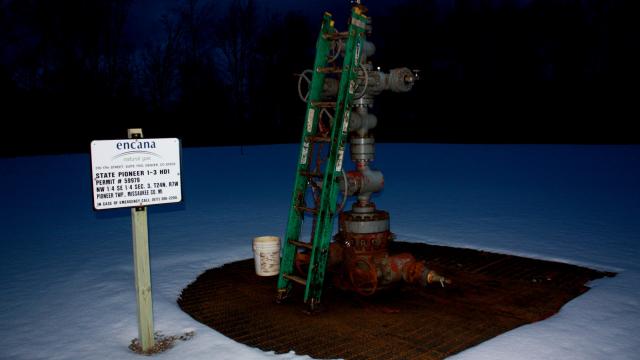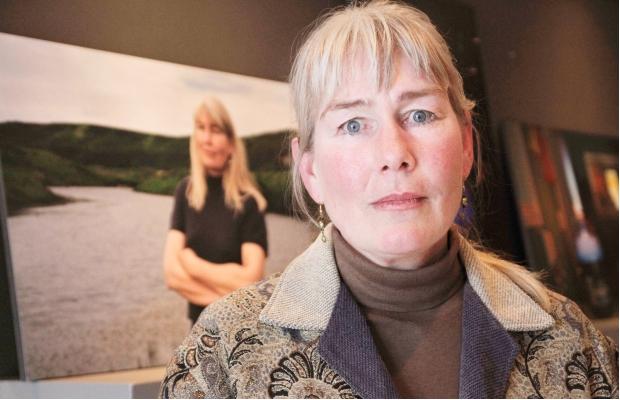
Alberta's top judge will be the new case manager for a celebrated multi-million lawsuit on the groundwater impacts of shallow hydraulic fracturing by scientist Jessica Ernst against Encana and Alberta regulators.
Chief Justice Neil Wittmann volunteered to take over the case after the Harper government promoted Honourable Barbara L. Veldhuis, a Court of Queen's Bench judge presiding over the landmark case, to the Court of Appeal of Alberta last month.
The promotion effectively removed Veldhuis from the celebrated lawsuit and threatened months of delay and additional cost for the plaintiff.
Moreover Justice Velduis was about to rule on whether or not Alberta's energy regulator could be sued by a landowner for failing to uphold provincial rules, protect groundwater and respect the constitutional rights of Canadians.
A lawyer representing the Energy Resources Conservation Board, Alberta's oil and gas regulator, had argued that it owed "no duty of care" to groundwater systems that sustain surface waters or to individual landowners.
Murray Klippenstein, the Toronto-based lawyer representing Jessica Ernst, welcomed the new judge to the case.
"The fact that the chief justice of Alberta's Court of Queen's Bench will be the case management judge in this case is indicative of the importance of the issues raised by Jessica Ernst's lawsuit," Klippenstein told The Tyee.
"We hope that the case can now move forward without unnecessary delay. Albertans are entitled to know what really happened in Rosebud." (Rosebud is a pretty hamlet north of Calgary where Encana has done extensive shallow drilling for coal bed methane.)
Rural Albertans' resolution wants stricter regulations
The practice of hydraulic fracturing, the injection of large volumes of water and chemicals into hydrocarbon bearing formations miles underground, has been the subject of global controversies due to lax groundwater protection, inadequate science and captive regulators.
Quebec, Germany, Bulgaria and New York state have placed a moratoriums on the practice while rural communities in South Africa and Australia have locked their gates to shale gas fracking operations to defend groundwater and livestock.
On March 19 the Alberta Association of Municipal Districts and Counties (AAMDC), which represents much of rural Alberta, voted overwhelmingly in favor of a resolution calling for stricter regulation of hydraulic fracturing and higher levels of protection for groundwater in the province.
The resolution calls on the Alberta government to directly map all groundwater and its contents; perform pre and post seismic testing on frack jobs; and "Protect surface and groundwater supply by imposing a minimum wellbore casing depth below aquifer zones."
In addition the AAMDC called for "the cessation of the use of fresh water to the oil and gas industry for the hydro-fracking and water injection process in all areas of Alberta as fresh water is required for human consumption."
Wheatland County Councillor Brenda Knight, who is not opposed to oil and gas development done right, says she introduced the resolution after gathering evidence on several hydraulic fracturing incidents in her county.
They included groundwater contamination, water well losses, improper well casing, and large openings that have appeared unexpectedly in the ground. In one case a farmer "lost his tractor in a spring that opened up."
The practice of hydraulic fracking has been around for a long time says Knight. "But it used to be a Model-T, now it's a Lamborghini" in terms of horsepower deployed to shatter oil and gas formations.
"We have to stay ahead of oil and gas companies. We can't stay idle. They've changed their technology and maybe its time to change some of our regulations."
Protecting landowners and the environment is not exactly "a rocket science," adds Knight. "Groundwater is the source of life for our household and our cattle. We can't ruin that."
Ernst's long, $33 million battle
Jessica Ernst is a resident of Wheatland County, a large area east of Calgary that has witnessed heavy drilling and fracking for coal bed methane and tight gas in recent years.
Her $33 million lawsuit alleges that Encana, one of Canada's largest natural gas producers, drilled and fracked shallow coal bed methane wells directly in the local groundwater supply between 2001 and 2004 near Rosebud, Alberta and thereby polluted Ernst's water well with enough toxic chemicals and methane to make it flammable.
In addition the claim details how Alberta's energy regulators, the Energy Resources Conservation Board and Alberta Environment "failed to follow the investigation and enforcement processes that they had established and publicized" despite direct evidence of industry-caused pollution and public admissions that shallow fracturing puts groundwater at risk.
To date Encana, the Alberta government and ERCB have not yet filed statements of defense on incidents that took place nine years ago. At the time industry drilled and fracked thousands of shallow wells in a coal formation in central Alberta resulting in scores of groundwater complaints, protests and public meetings.
A statement on Encana's website says it has been "safely and responsibly producing natural gas" and that Ernst's claim "is without merit."
The ERCB moved to strike the case last year. Its lawyers have argued that the regulator, an agency that landowners largely distrust throughout the province, is immune from lawsuits. The board's legal representatives have also written that the regulator owes "no duty of care" to citizens complaining about groundwater contamination because such a finding would create " a flood litigation."
Justice Wittmann will consider how best to re-hear arguments presented in a crowded Calgary court room last January. He will either read the transcripts or require a rehearing of the arguments.
Prior to his appointment as chief justice three years ago Wittmann served as a popular Calgary judge and prior to that he worked as partner for the law firm Code Hunter Wittmann for 27 years.
Wittmann also co-authored a book about environmental liabilities and damages titled Western Canadian Hazardous Waste Management & Liability in the 1990s. It was published by the Canadian Institute in 1989.
3 WAYS TO SHOW YOUR SUPPORT
- Log in to post comments












